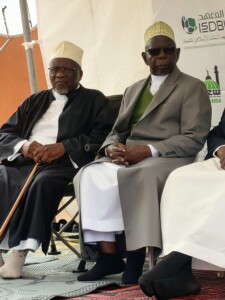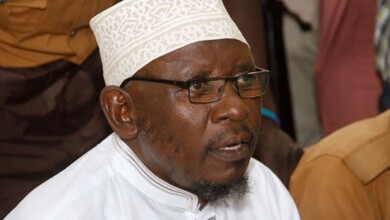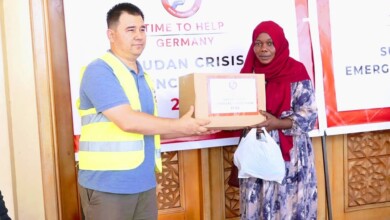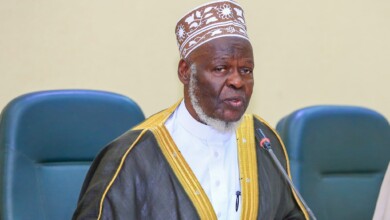House of Zakat unveils Shs 1.5billon building

By Baker Batte Lule
House of Zakat and Waqf Uganda -HZW has today unveiled a Shs 1.5billion building located at Ntinda in Nakawa division, Kampala district.
The apartment building has six housing units which according to Dr Matovu Ibrahim will at least fetch Shs 10 million a month.
Speaking through Dr Ibrahim Matovu, at the unveiling of the building today, Sheikh Abdul Obed Kamulegeya the chairman of the board of directors House of Zakat and Waqf, called upon all Muslims in Uganda to donate whatever they can so that the community can have resources to run their activities.
“The money from this property is not for any of us here but rather it is money going to look after Ugandans with challenges. The money from this property joins the money we collect from Zakat to be used for the exact purposes for which it is collected,” Matovu said.
He thanked all the people of Uganda who continue to contribute to House of Zakat and Waqf. He said so far, they have got a number of properties across the country. He said many of these properties had been donated by people of good will.
“We have got so many programs that we are running as an organization. We are building schools, we are paying school fees, we are helping the needy. In the last 13 years, we have made a difference in the lives of very many people,” Matovu said.
For his part, the Chief Executive Officer of HZW, Sheikh Mahmood Kibaate thanked Allah for the milestones they have achieved.
Kibaate who didn’t disclose who had donated or how the property had been acquired said with the new acquisition, the portfolio of the organization is surely growing.
“This property like many others in different parts of the country is registered in our name. Now I can confidently say that we have accumulated a number of properties that can assist in our work. We thank Allah for the people who are giving us these properties,” Kibaate said.
Speaking at the same function, the chairman of Waqf at HZW, Hajji Jamada Lutta called upon HZW to resume assisting low-income earners to grow their businesses like it used to do before the outbreak of the Covid-19 pandemic. He said this not only assisted those in most need but also increased the number of people paying Zakat.
“When we gave them assistance, they grew their businesses and actually also started paying Zakat,” Lutta said.

Starting in 2010 with just a one roomed office and one desktop computer with a few chairs, HZW has since grown into a big organization collecting millions in zakat that is used to help those in need.
The organization has also since acquired different properties that are also a source of resources that are used to ran its activities.
Among the properties that HZW own include, seven acres of land with eucalyptus at Mbirizi in Masaka district, two acres of land with pine trees in Kyankwanzi district, 10 acres of land with eucalyptus at Kalamba in Butambala district, 50 acres of land in Hoima district, Plot 9 Perryman Garden Old Kampala which houses its headquarters valued at about Shs 2billion among others.
HZW has also constructed schools, with the ongoing project being Ddegeya UMEA primary school in Maddu Sub county Gomba district.
Working with different schools across the country, HZW is also paying school fees for the needy students up to university level.
HWZ works with schools such as Mbogo schools, Kampala SS, Kasawo SS, Ubuntu SS, Wakatayi SS, Mariam High, Kinaawa High School among others where vulnerable students are sponsored.
HWZ has also a running contract with Metropolitan International University and almost 2000 students have or are going to acquire degrees.
HWZ also works with Al Bukhari International University in Malaysia where 30 students are sponsored every year to acquire post graduate degrees in different fields.
So far more than 5000 students have been supported through secondary to university.
Dr Matovu who is in charge of the education department said they realised that most of those who sought help were looking for school fees for their children. Since then, most of their resources have gone into helping needy students acquire an education they would otherwise have missed.





